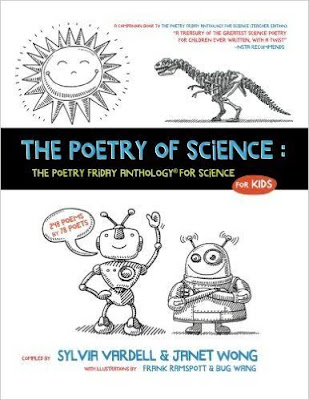The Chilean poet Gabriela Mistral was the first South American to win the Nobel Prize (in 1945), and she remains the only South American woman to have done so. She was an educator, a social activist, a diplomat and a poet. She won the Chilean National Poetry Prize with her first book when she was just 25, but it's her second book - Ternura [Tenderness] - that I'm recommending for my poetry Friday post today. It contains some wonderful poems for children - familiar nursery rhyme rhythms, but slightly strange images - well, like our own English nursery rhymes, actually (don't look to nursery rhymes for sweetness and light!)
Here are two of my favorite Mistral poems for children, translated by the wonderful Ursula LeGuin, who captures perfectly the rhythms and music of the originals. Definitely check out Selected Poems of Gabriela Mistral, translated by LeGuin - it contains many of the children's poems by Mistral (called lullabies, Tell-a-World poems, "Trickeries," and "round dances") as well as a good selection of her most famous poems for adults, and an introduction that explains LeGuin's approach to translating Mistral. Hope you enjoy these.
LA RATA
Una rata corrió a un venado
y los venados al jaguar,
y los jaguares a los búfalos,
y los búfalos a la mar…
Pillen, pillen a los que se van!
Pillen a la rata, pillen al venado,
pillen a los búfalos y a la mar!
Miren que la rata de la delantera
se lleva en las patas lana de bordar,
y con la lana bordo mi vestido
y con el vestido me voy a casar.
Suban y pasen la llanada,
corran sin aliento, sigan sin parar,
vuelan por la novia, y por el cortejo,
y por la carroza y el velo nupcial.
THE RAT
A rat ran after a deer,
deer ran after a jaguar,
jaguars chased buffalo,
and the buffalo chased the sea...
Catch the ones who chase and flee!
Catch the rat, catch the deer,
catch the buffalo and the sea!
Look, look at the rat in front,
in its paws is a woolen thread,
with that thread I sew my gown,
in that gown I will be wed.
Climb up and run, breathless run,
ceaseless chase across the plain
after the carriage, the flying veil,
after the bride and the bridal train!
 |
| Gabriela Mistral - First Communion |
***
DAME
LA MANO
A Tasso de Silveira
Dame la mano y danzaremos;
dame la mano y me amarás.
Como una sola flor seremos,
como una flor, y nada más.
El mismo verso cantaremos,
al mismo paso bailarás.
Como una espiga ondularemos,
como una espiga, y nada mas.
Te llamas Rosa y yo Esperanza;
pero tu nombre olvidarás,
porque seremos una danza
en la colina, y nada mas.
GIVE ME YOUR HAND
For Tasso de Silveira
Give me your hand and give me your
love,
give me your hand and dance with me.
A single flower, and nothing more,
a single flower is all we’ll be.
Keeping time in the dance together,
singing the tune together with me,
grass in the wind, and nothing more,
grass in the wind is all we’ll be.
I’m called Hope and you’re called
Rose;
but losing our names we’ll both go free,
a dance on the hills, and nothing more,
a dance on the hills is all we’ll be.
 |
| Gabriela Mistral 1889-1957 |
|
|
|
-------------------------------------------------
The Poetry Friday round-up this week is being hosted by Catherine at
Reading to the Core. Head over there to see what other people have posted.
















